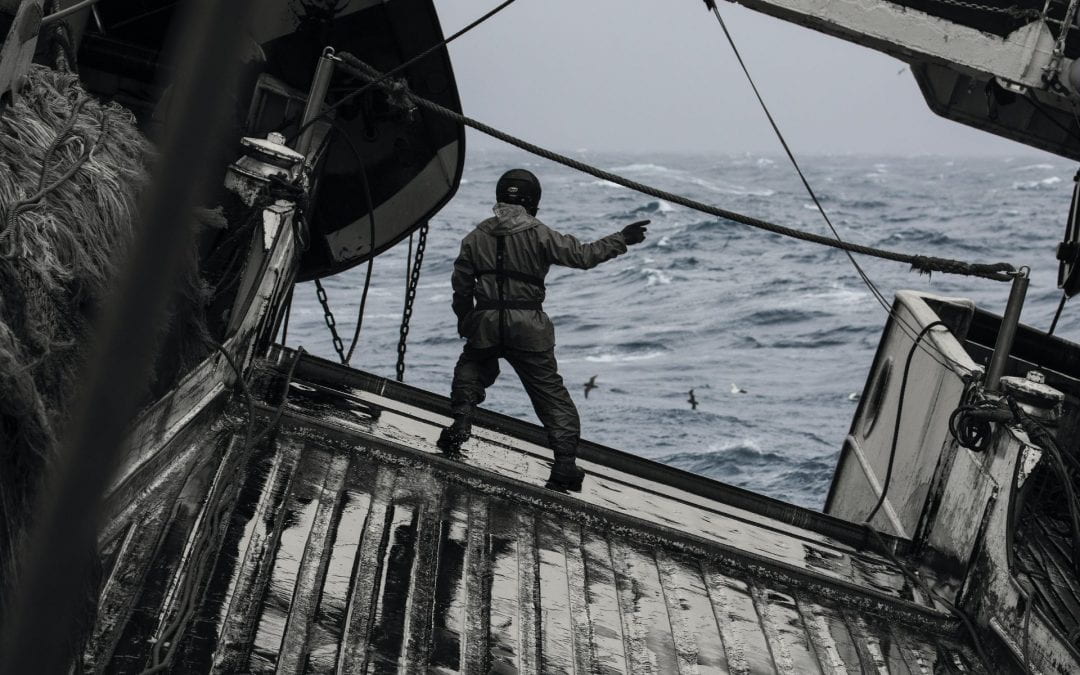By Christina Stringer
In recent months, international media have reported dark ships fishing in the Democratic People’s Republic of Korea’s (commonly referred to as North Korea) waters.
“Dark ships” are vessels with their Automatic Identification System (AIS) – a transponder system – switched off so as not to be detectable by public monitoring systems. In the fishing industry, a key reason to switch the responders off is for the vessel to engage in illegal, unreported, and unregulated (IUU) fishing practices. It’s also a way of getting around laws. Both Iran and Venezuela which have been reported as shipping oil using dark ships to avoid United Nations (UN) sanctions.
It should be noted, however, that not all dark ships are operating illegally. For those engaged in legal fishing, information pertaining to their fishing practices is not publicly available beyond their country’s monitoring system.
While it is difficult to determine the extent of IUU fishing, the practice is estimated to be worth up to US$23.5 billion per year globally. IUU fishing leads to overfishing and unfair competition and has economic and social consequences. One of the UN Sustainable Development Goals – target (14.4) – is to end IUU fishing practices.
In 2017, Global Fishing Watch, a not-for-profit organisation, identified more than 900 Chinese dark ships fishing in North Korea’s waters. Combining data from multiple satellite technologies allowed Global Fishing Watch to overcome limitations associated with just one technology, for example, offline AIS transponders. After identifying the presence of dark ships, Global Fishing Watch was able to use active AIS transponder signals to track the origin of the vessels as Chinese.
As part of the sanctions imposed on North Korea for undertaking ballistic missile tests, in 2017 the UN Security Council restricted North Korea from selling seafood as well as selling and transferring fishing rights internationally. The fishing industry was a key income earner for the North Korean government to obtain hard currency.
It is not known if the Chinese vessels fishing in North Korea’s exclusive economic zone have the permission of Chinese and North Korean authorities. If they do not have permission, they are fishing illegally. If vessel operators have permission from either the Chinese or North Korean government, or indeed both governments, they are in direct violation of the UN sanctions.
Chinese vessels fishing in North Korea’s waters have a significant impact on domestic operators. Over the last five years, more than 500 North Korean artisanal fishing vessels – referred to as ghost ships – have washed up on the shores of Japan’s western prefectures. Sometimes, the derelict vessels have badly decomposed bodies on board, sometimes there are survivors. Other times just bodies have washed up on the beach. What explains the increase in ghost ships?
North Korean fishing operators do not have the capability of competing with the Chinese trawlers. But this is not the only reason. In recent years, the North Korean government is reported to have increased the number of registration licences granted to fishermen. Pressure on a larger number of fishermen to provide returns to the government coupled with the depletion of resources has resulted in them venturing illegally into Russian and Japanese exclusive economic zones.
The North Korean artisanal vessels are small and poorly equipped. If their engines break down or run out of fuel, they can be carried by strong currents and winds to the coast of western Japan, over 1,000 km away.
Returning to IUU fishing, these practices are widespread in international waters. Increasingly attention is being paid to linkages between IUU fishing practices and the exploitation of workers on board these vessels. In particular, there have been reports of Indonesian and Filipino crew working in slave-like conditions on board Chinese and Taiwanese distant water fishing vessels.
Another technology tool that has been developed to combat problems associated with dark ships, was launched this year by a Finnish company. The Dark Vessel Detection, a real-time information tool, has the potential to aid in the combating of IUU fishing, as well as other illegal practices occurring at sea. Still, however, more widespread use of technology is needed to address crimes that happened at sea.
Christina Stringer is an Associate Professor in Management and International Business at the University of Auckland. She is an expert in forced labour and human trafficking in the fishing industry.
Disclaimer: The ideas expressed in this article reflect the author’s views and not necessarily the views of The Big Q.
You might also like:
Q+A: How is climate change reshaping oceans and marine life?
Are our oceans under threat? 🔊

